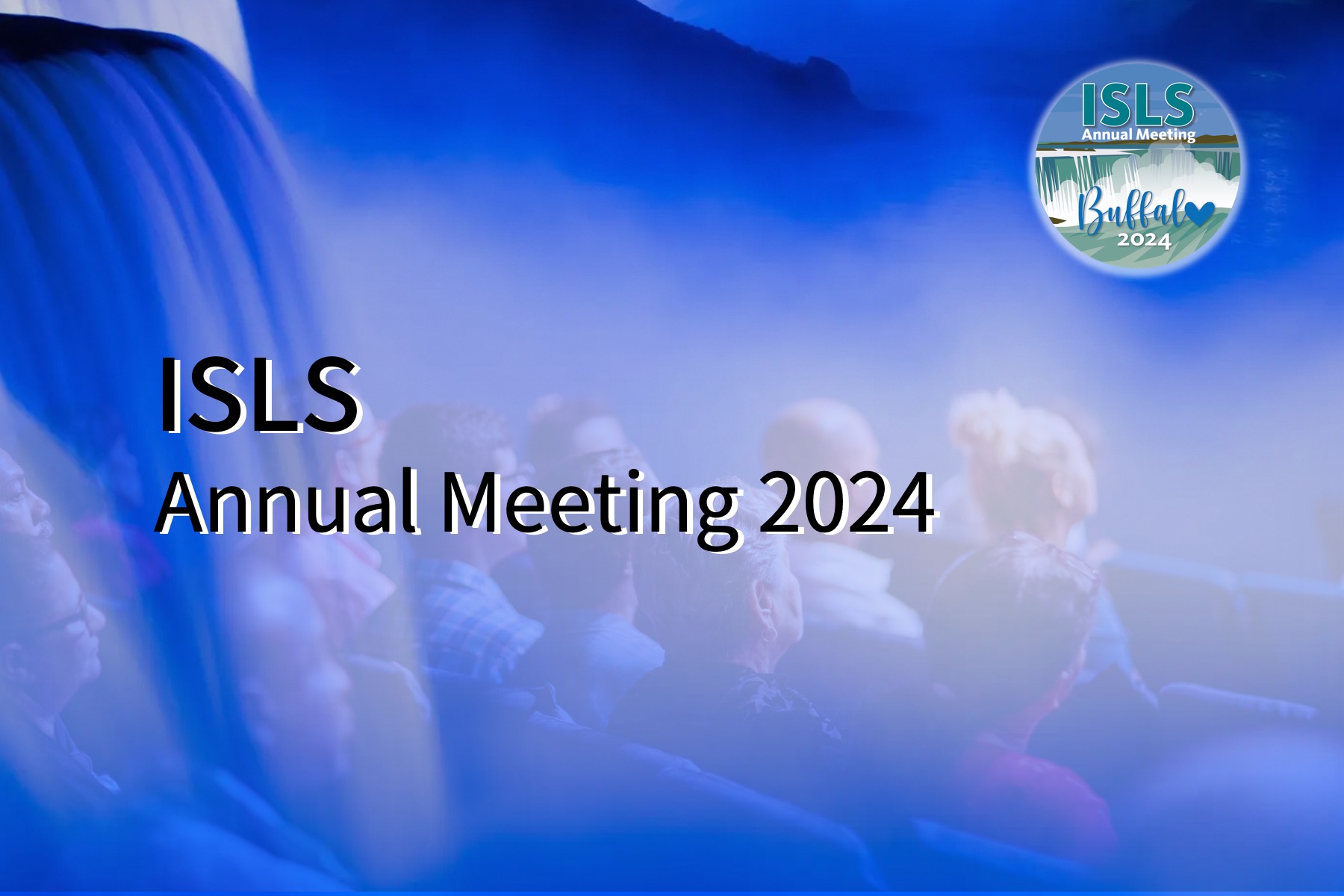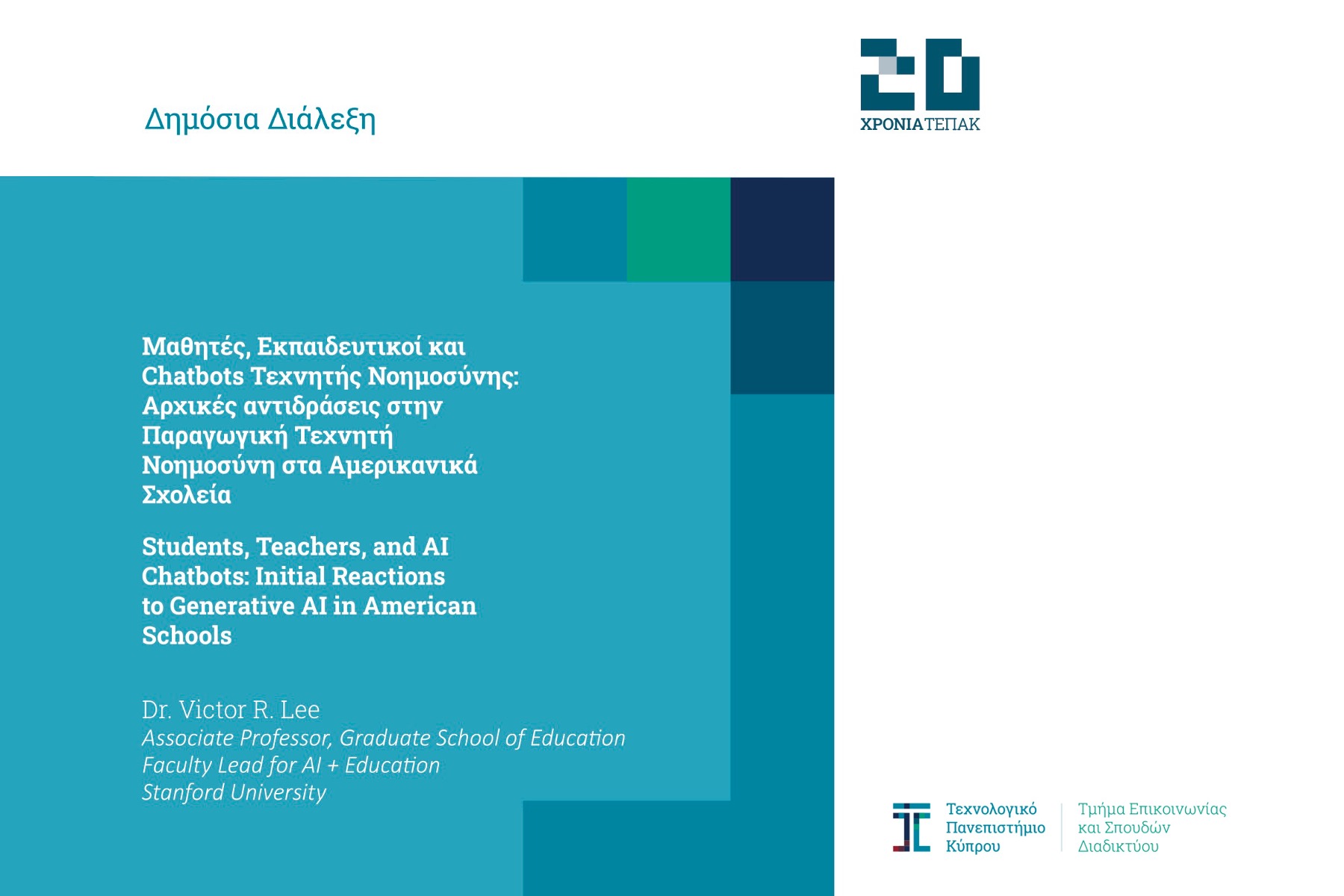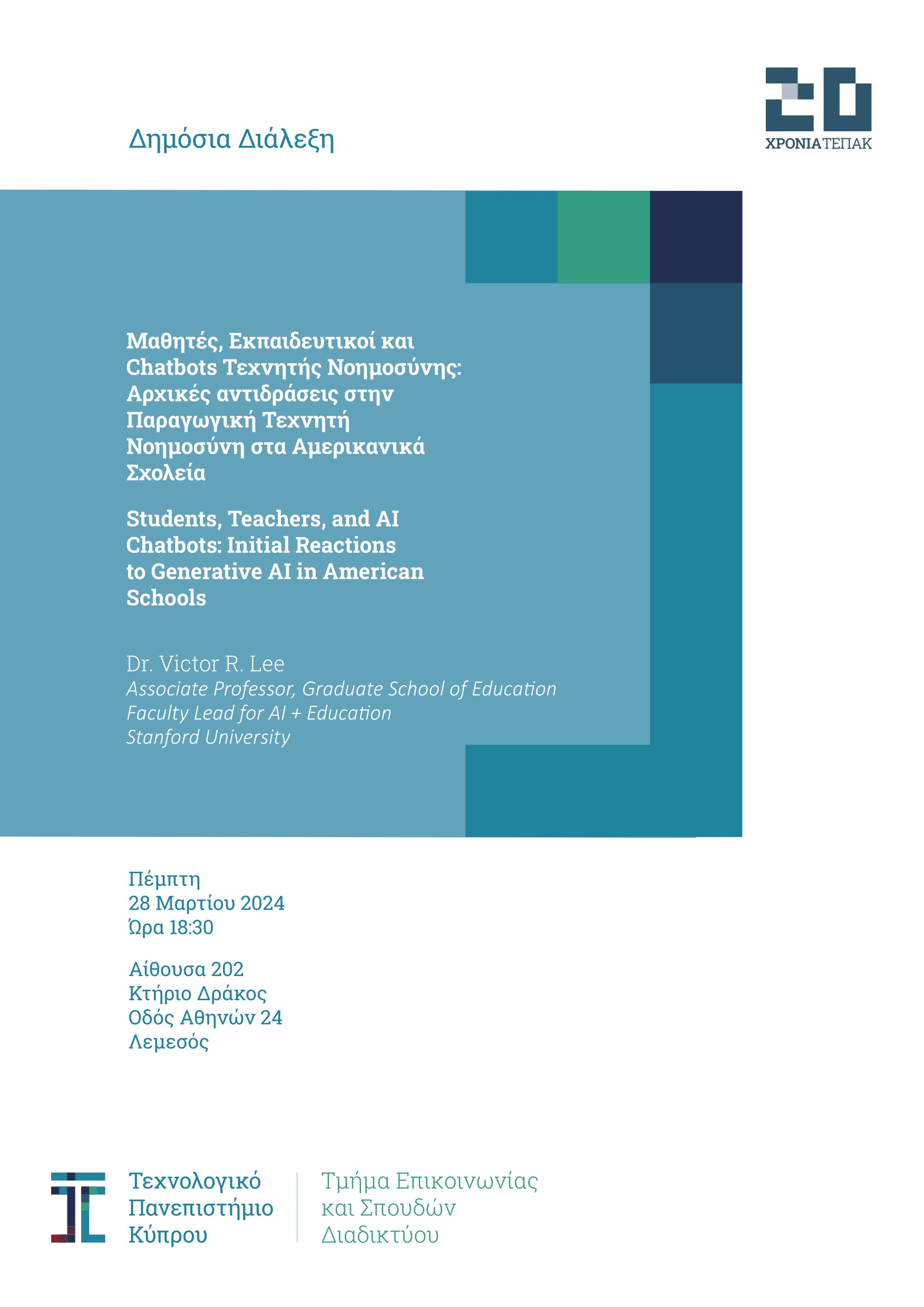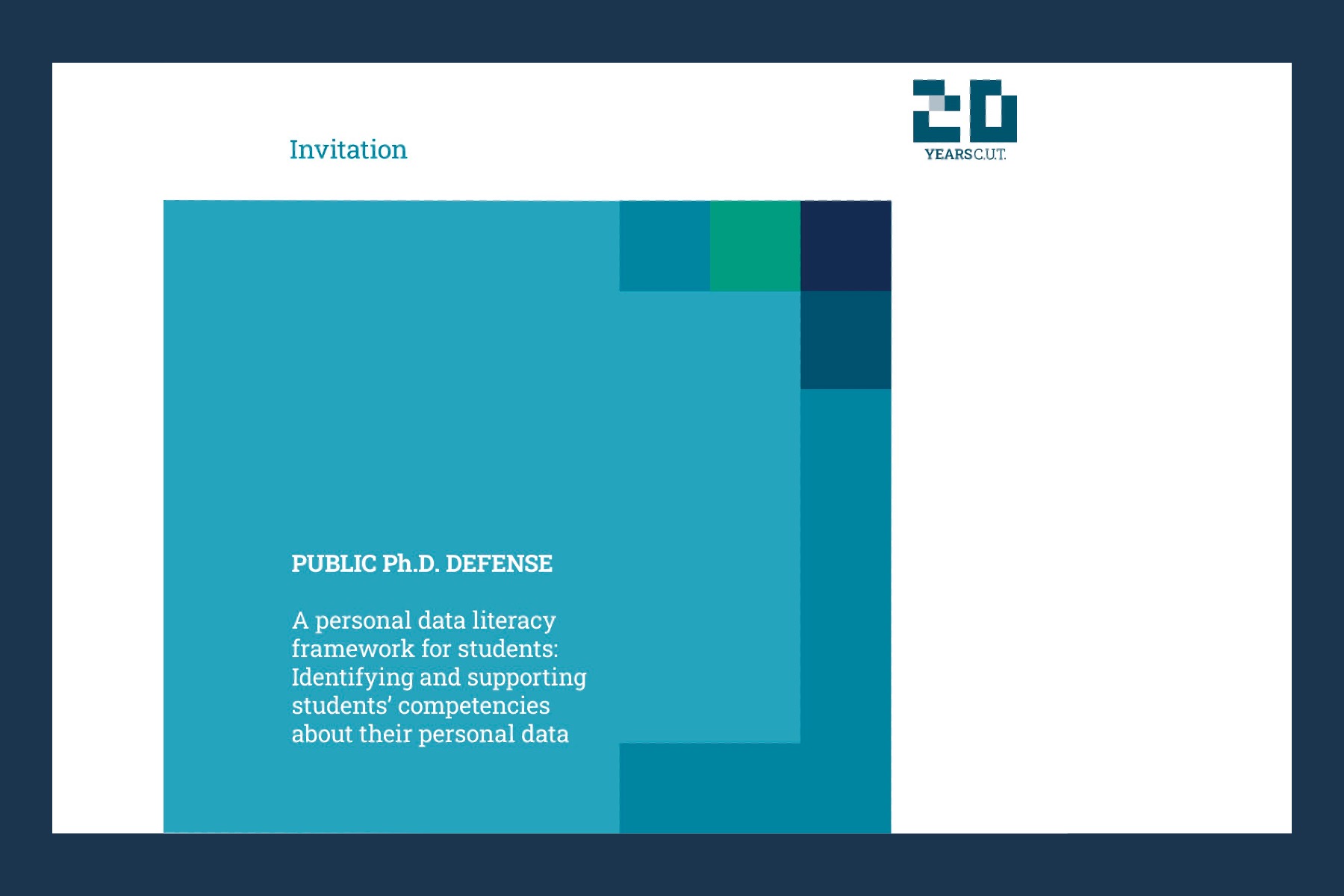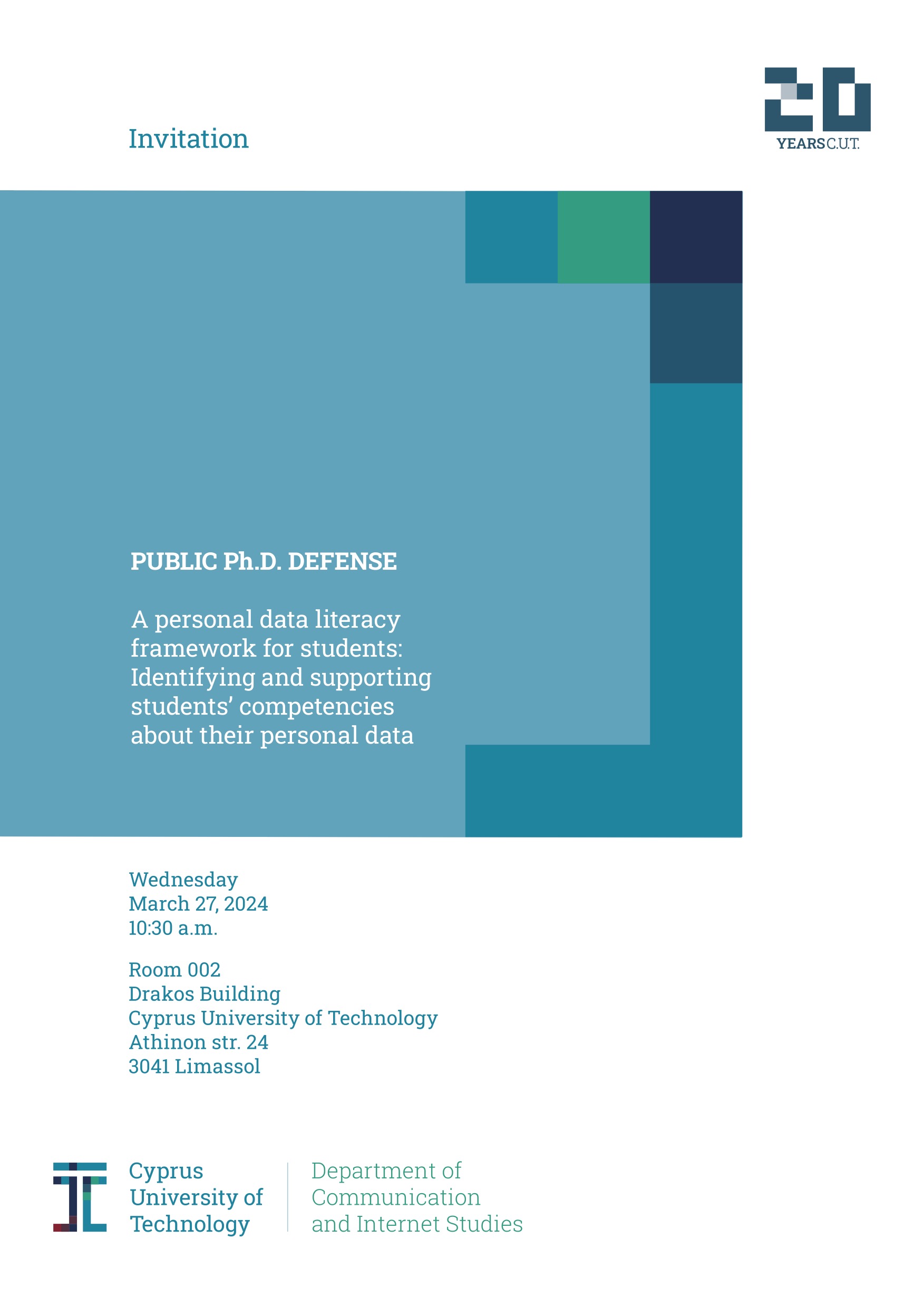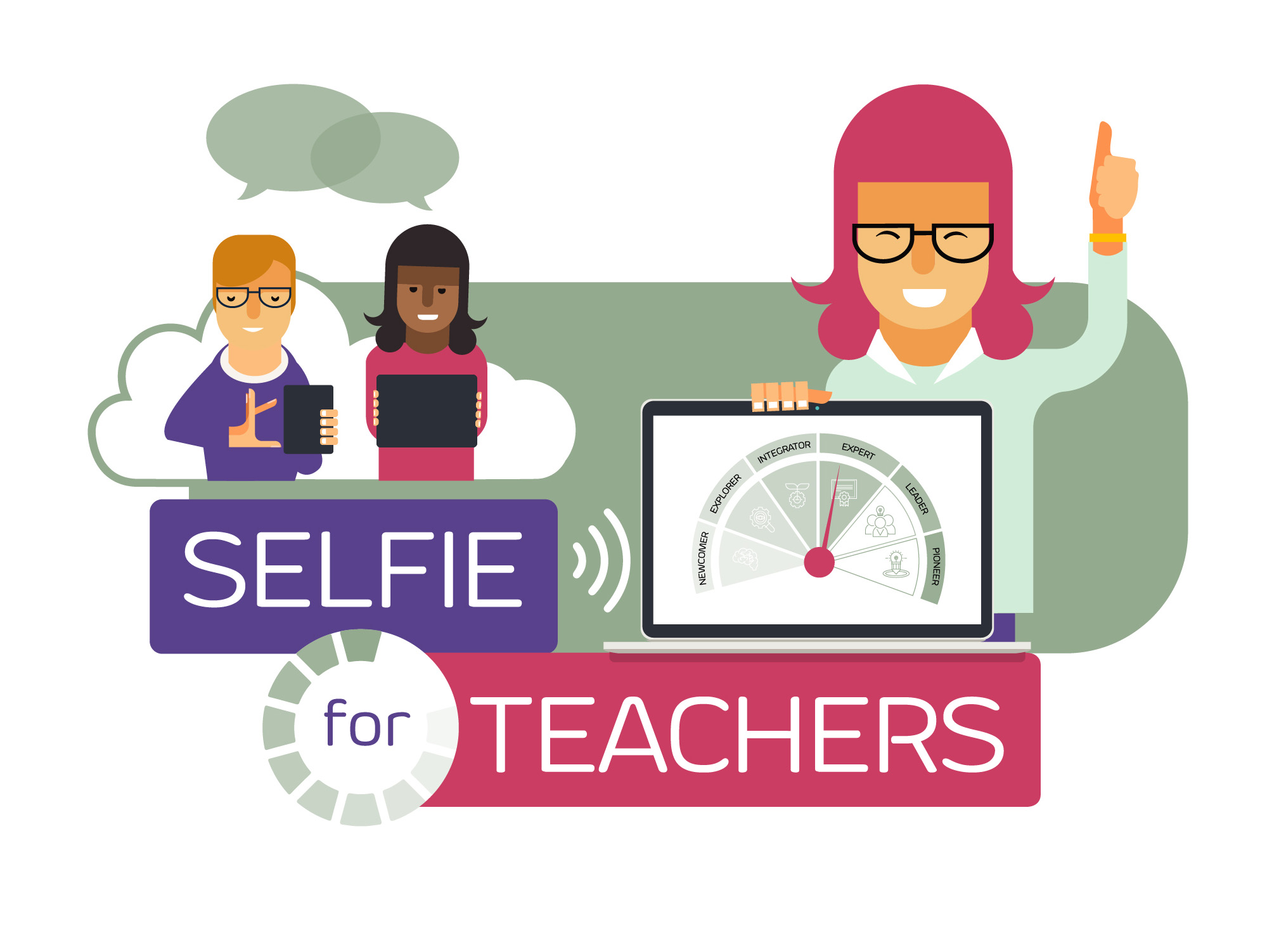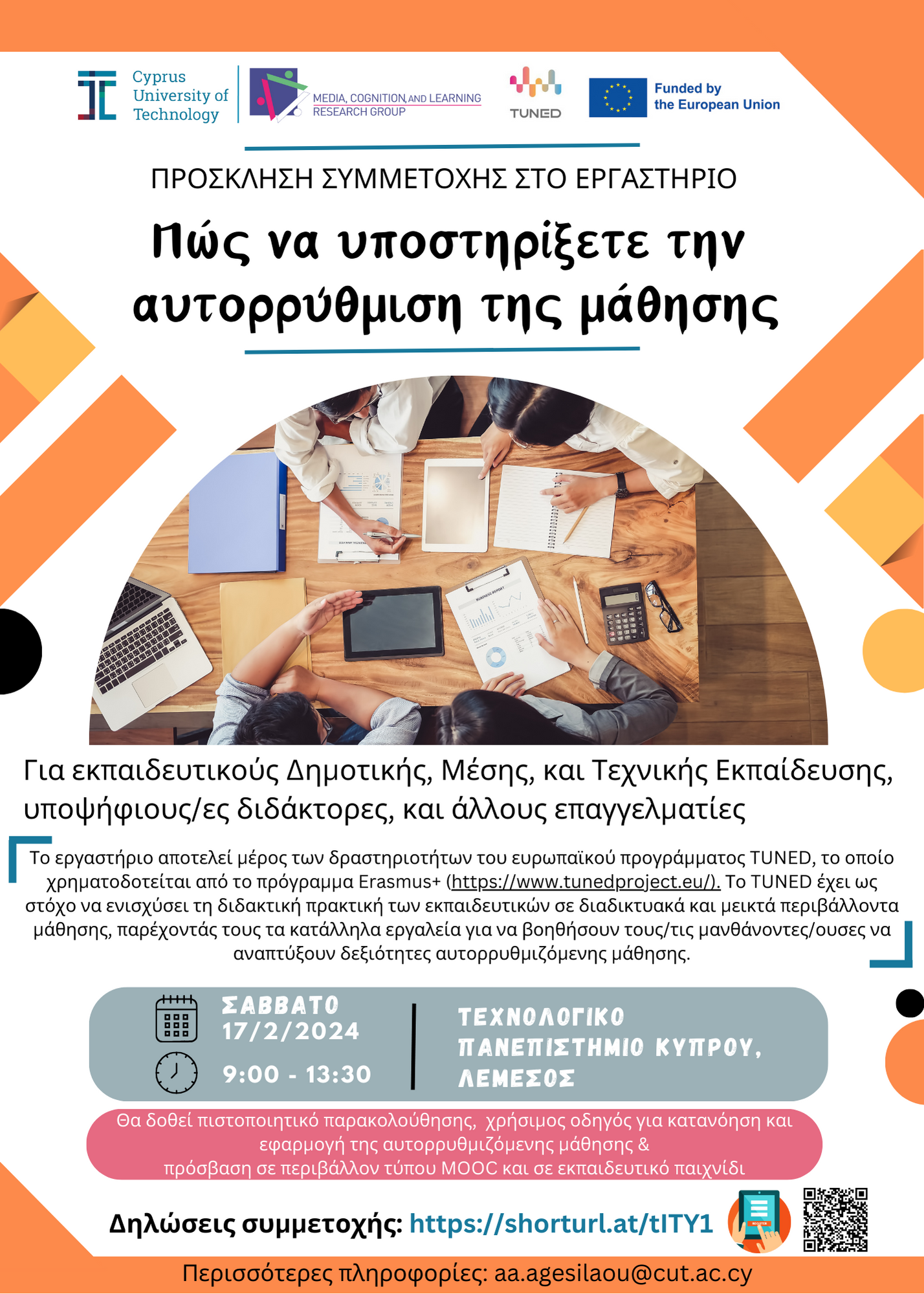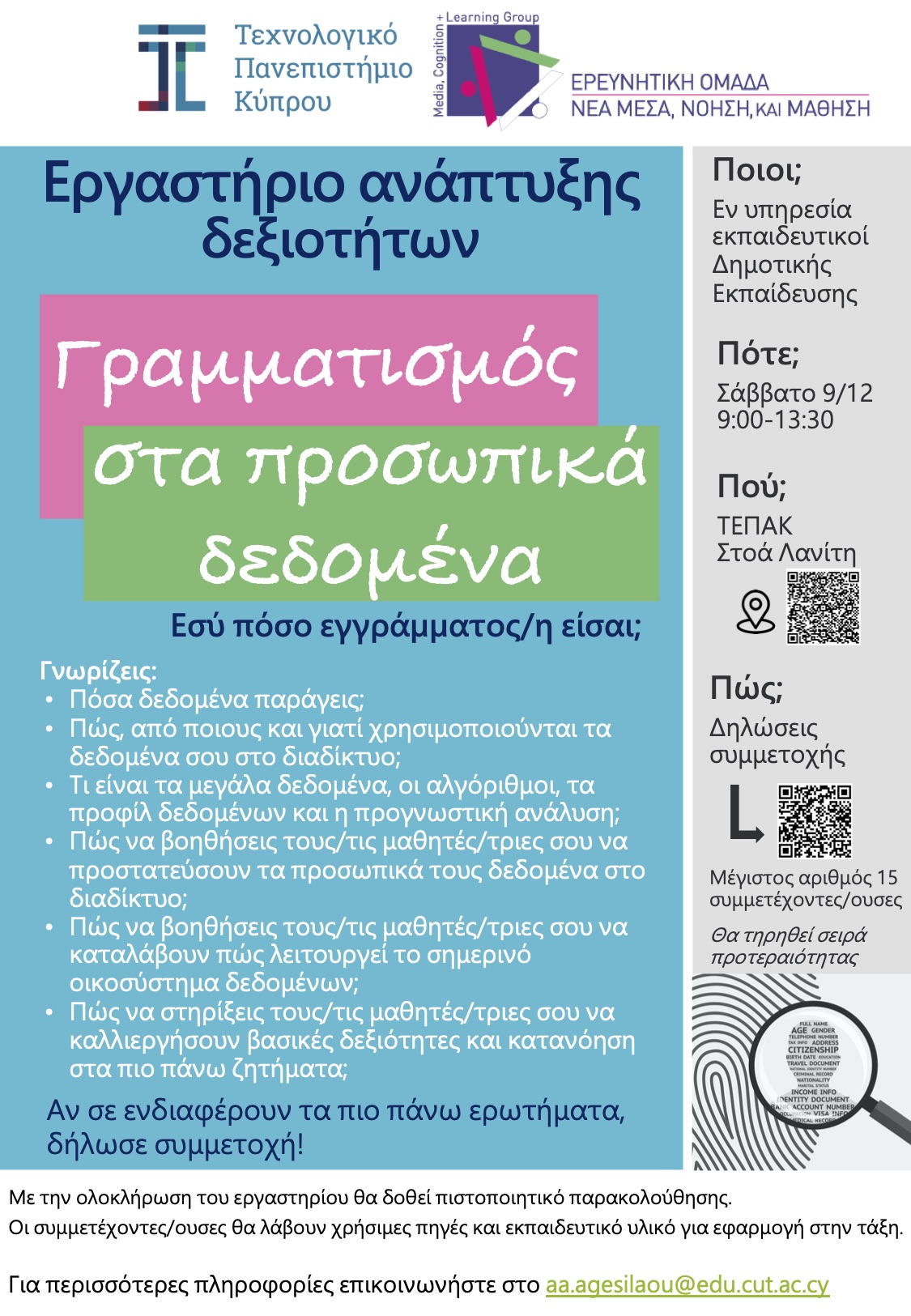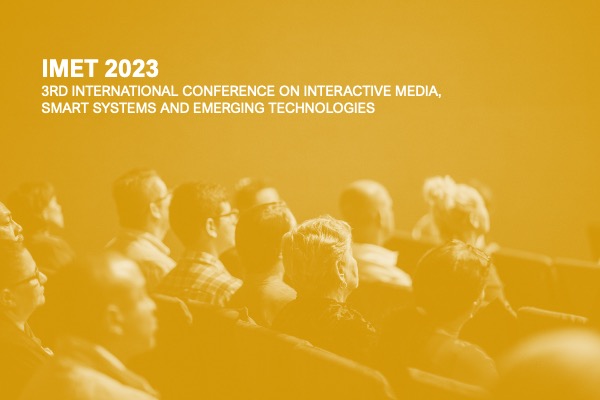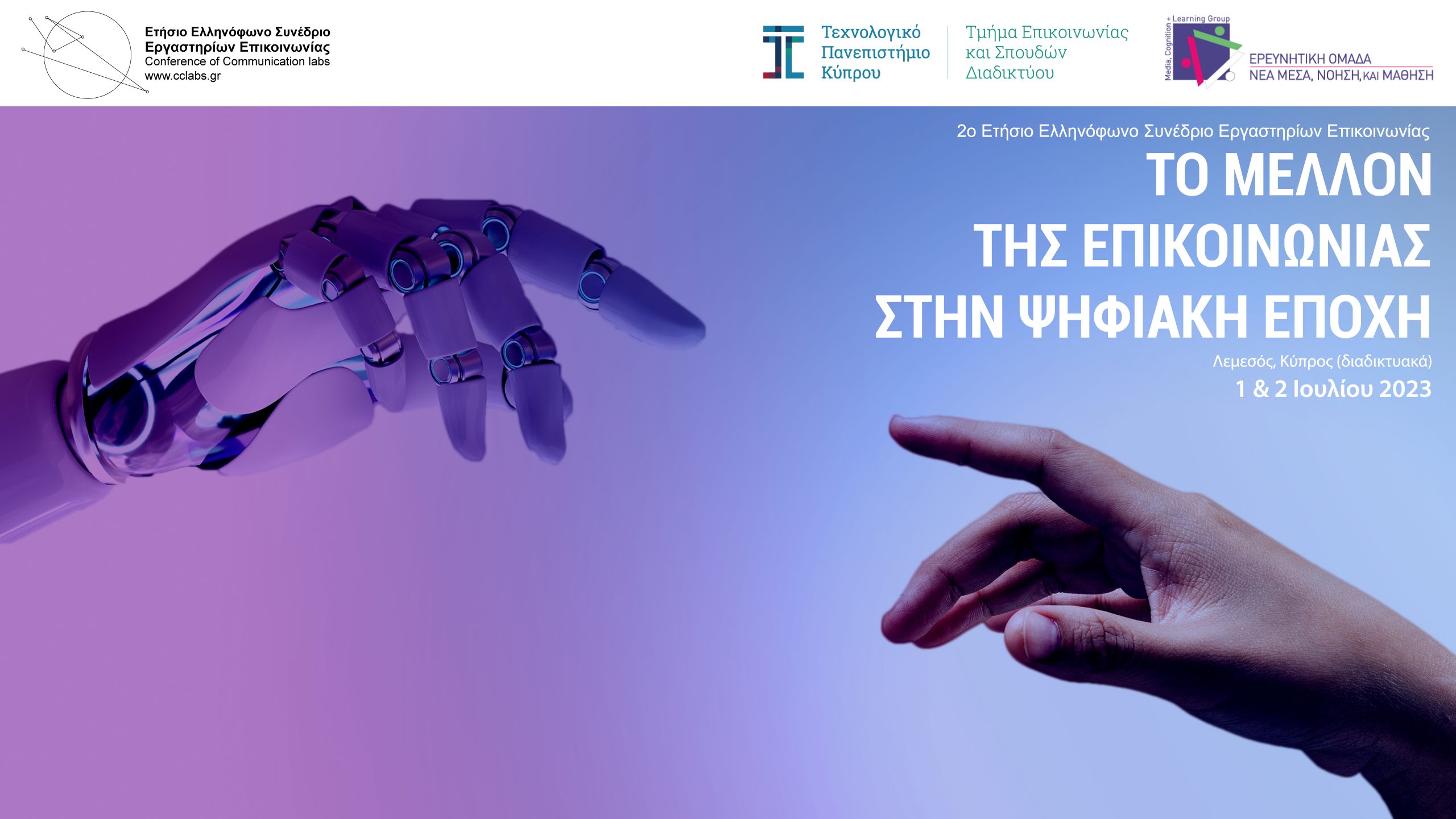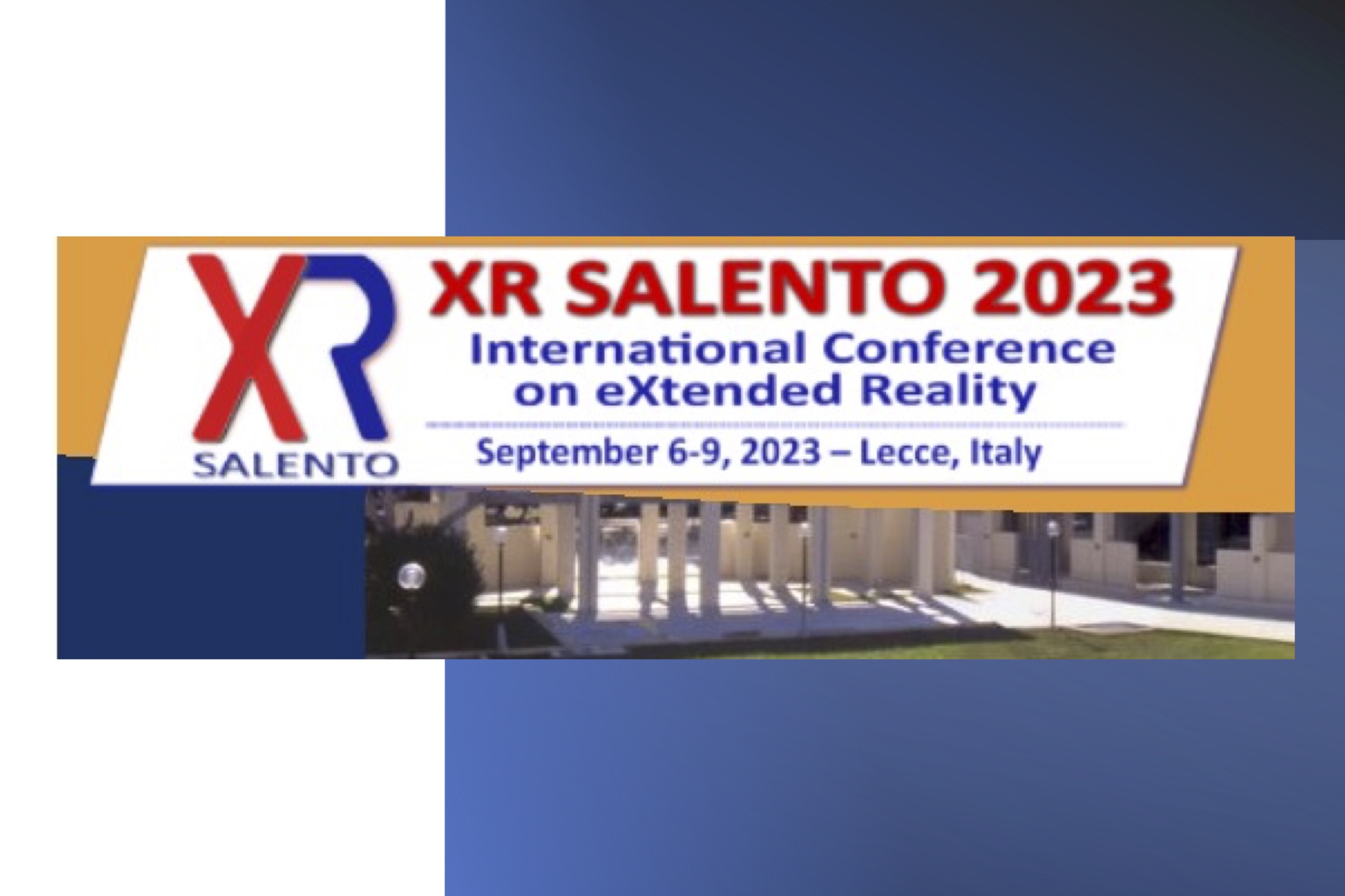
We are thrilled to announce that one of our team members, Andria Agesilaou, has been selected to receive prestigious funding for post-doctoral research from the Research and Innovation Foundation! This accomplishment highlights her academic contributions and strengthens the dedication of our research group to advancing knowledge in the field of personal data literacy.
The funded research will focus on Investigating the development of students’ Personal Data Literacy competencies (PeDaLcomp), responding to the urgent need to understand how to equip young learners with essential competencies to navigate, manage, and ethically engage with personal digital data in today’s complex data-driven world.
Below you can find the description of the project:
The PeDaLcomp project is a research initiative aimed at advancing personal data literacy (PeDaL) among elementary school students through innovative educational tools and methodologies. Rooted in the PeDaL framework, this project responds to the urgent need to equip young learners with essential competencies to navigate, manage, and ethically engage with personal digital data in today’s data-driven world. Key objectives of the PeDaLcomp project include validating and refining the PeDaL framework, designing and implementing two distinct learning environments – a Technology-Enhanced Learning Environment using activity trackers, and a web-based platform with data visualization tools; and creating a grade specific rubric demonstrating competence development among different age populations. Pedagogical, student-centered approaches, such as gamification, inquiry-based learning, and scaffolding are systematically evaluated to determine their effectiveness in fostering personal data literacy. Through design-based research, PeDaLcomp aims to produce tangible outcomes: validated educational frameworks, pedagogical insights, and scalable technological solutions. These efforts are expected to significantly enhance educational practices, ensuring that elementary school students acquire the critical skills necessary to responsibly navigate the complexities of personal data in the digital age. Ultimately, the PeDaLcomp project contributes not only to the advancement of personal data literacy in educational settings but also to the broader understanding of how emerging technologies can be effectively integrated into pedagogical practices to prepare future generations for a data-driven society.
The PeDaLcomp project aligns closely with the goals of our research group and holds great promise for making a significant impact in the field of personal data literacy.
Stay tuned for updates on this exciting work!

